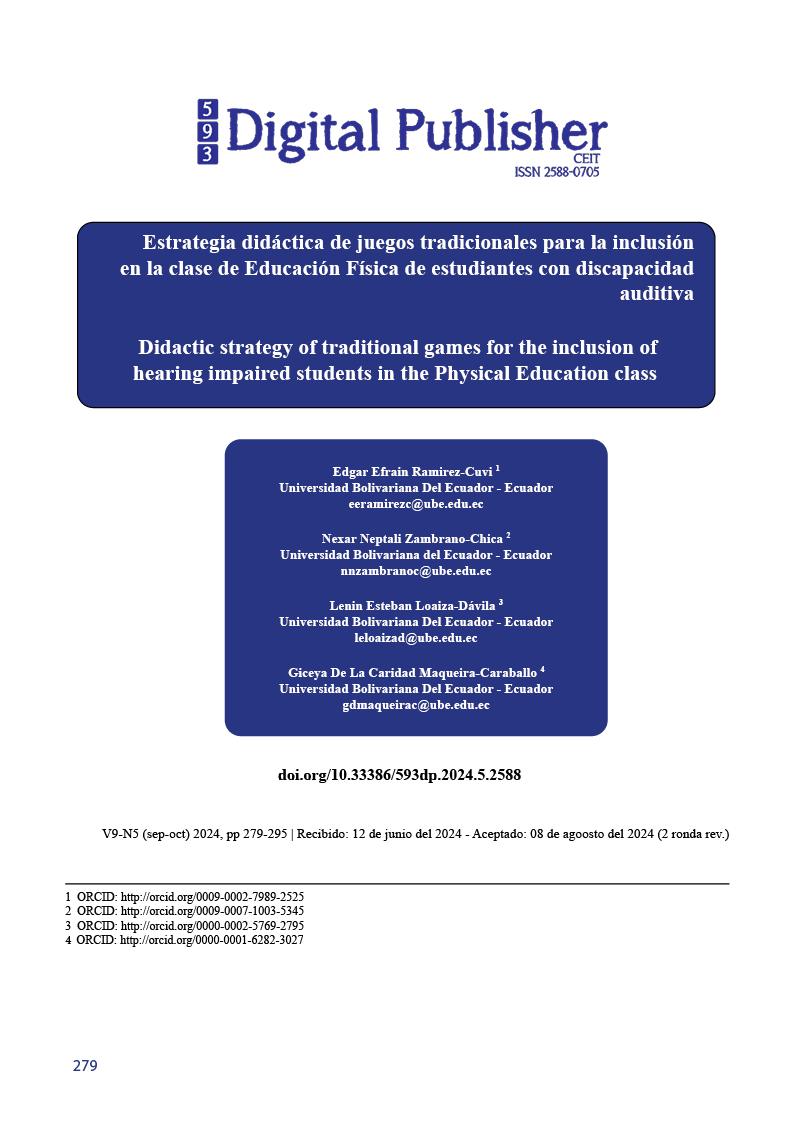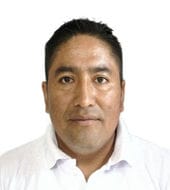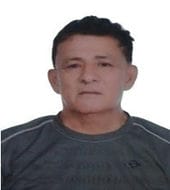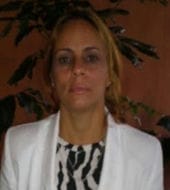Didactic strategy of traditional games for the inclusion of hearing impaired students in the Physical Education class
Main Article Content
Abstract
The objective of this study was to design a methodological strategy that integrates traditional games in Physical Education classes, specifically oriented to the inclusion of students with hearing impairment (DA). A sample of 7 students was selected to form a cooperative group within the Physical Education class, 6 of which were considered conventional without the presence of AD and one (16 years old) had a 55% auditional disability diagnosed as Deafness-Hypoacusis. The study design was based on a mixed approach of pre-experimental research type regarding the quantitative approach and a case study approach to respond to the qualitative approach. The technique applied in the quantitative component of the study was observation and the instrument used was a quantitative observation form to assess the level of inclusion in the Physical Education class through the parameters of participation and effort, physical skills, communication and cooperation, and adaptation and creativity. The intervention proposal was developed during 8 weeks with 16 sessions of 55 minutes and was based on the development of different traditional games, with a motor objective and inclusive and adaptive actions based on the results of the initial diagnosis and the needs of the sample studied. As results, significant improvements were observed in several aspects of behavior, active participation and personal effort and physical and social skills of the students, both with and without AD.
Downloads
Article Details

This work is licensed under a Creative Commons Attribution-NonCommercial-ShareAlike 4.0 International License.
1. Derechos de autor
Las obras que se publican en 593 Digital Publisher CEIT están sujetas a los siguientes términos:
1.1. 593 Digital Publisher CEIT, conserva los derechos patrimoniales (copyright) de las obras publicadas, favorece y permite la reutilización de las mismas bajo la licencia Licencia Creative Commons 4.0 de Reconocimiento-NoComercial-CompartirIgual 4.0, por lo cual se pueden copiar, usar, difundir, transmitir y exponer públicamente, siempre que:
1.1.a. Se cite la autoría y fuente original de su publicación (revista, editorial, URL).
1.1.b. No se usen para fines comerciales u onerosos.
1.1.c. Se mencione la existencia y especificaciones de esta licencia de uso.
References
Adebisi, R., & Yakubu, D. (2020). Aggressive behaviours on peer social relationship of students with hearing impairment in Federal College of Education (Special), Oyo, Nigeria. Research Journal in Advanced Social Sciences. 1, 40-52. https://doi.org/10.58256/rjass.v1i.224
Alshahrany, A.; HalijahBt I. (2020). Performance of Fundamental Movement Skills among Elementary School Children with Hearing Impairment by Using an Exergame in an Inclusive Physical Education Sitting: Review of Literature. Indian Journal of Public Health Research & Development. https://doi.org/10.37506/ijphrd.v11i4.9147
Alshahrany, A.; HalijahBt I. (2021). Motor Skills Performance of Children with Hearing Impairment using Different Modules and Physical Education Setting. Turkish Journal of Computer and Mathematics Education (TURCOMAT), 12(4), 473–487. Retrieved from https://turcomat.org/index.php/turkbilmat/article/view/529
Arioli, M., Segatta, C., Papagno, C., Tettamanti, M., & Cattaneo, Z. (2023). Social perception in deaf individuals: A meta‐analysis of neuroimaging studies. Human Brain Mapping, 44, 5402 - 5415. https://doi.org/10.1002/hbm.26444.
Barton, E., Pokorski, E., Sweeney, E., Velez, M., Gossett, S., Qiu, J., Flaherty, C., & Domingo, M. (2018). An Empirical Examination of Effective Practices for Teaching Board Game Play to Young Children. Journal of Positive Behavior Interventions, 20, 138 - 148. https://doi.org/10.1177/1098300717753833
Carpendale, J., Lewis, C., & Müller,, U. (2020). Piaget's Theory. The Encyclopedia of Child and Adolescent Development. https://doi.org/10.1002/9781119171492.wecad100
Castro, R., Andrade, R., Darin, T., Carvalho, L., Carneiro, N. y Araújo, M. (2021). Estrategias de accesibilidad en un juego de cartas móvil. Actas del XX Simposio Brasileño sobre Calidad del Software. https://doi.org/10.1145/3493244.3493270
Coimbra, M., Cody, R., Kreppke, J., & Gerber, M. (2020). Impact of a physical education-based behavioural skill training program on cognitive antecedents and exercise and sport behaviour among adolescents: a cluster-randomized controlled trial. Physical Education and Sport Pedagogy, 26, 16 - 35. https://doi.org/10.1080/17408989.2020.1799966.
Cristea, D., Moțoc, I., & Pop, A. (2020). Aspects regarding the integration of children with special educational needs through participation in physical education. Baltic Journal of Health and Physical Activity. (1):79 86.https://doi.org/10.29359/BJHPA.12.SPEC.ISS1.09
Dell'Anna, S., Pellegrini, M., Ianes, D. y Vivanet, G. (2020). Resultados de aprendizaje, sociales y psicológicos de estudiantes con discapacidades moderadas, graves y complejas en educación inclusiva: una revisión sistemática. Revista Internacional de Discapacidad, Desarrollo y Educación, 69, 2025 - 2041. https://doi.org/10.1080/1034912X.2020.1843143
Dunn, M., Albagshi, A., & Aldawsari, F. (2022). Investigating Writing Instruction Practices for Students With Deafness and Hearing Loss. Language and Literacy, 24(2), 153–173. https://doi.org/10.20360/langandlit29528.
Egan, J., Tolman, S., McBrayer, J. S., & Ballesteros, E. (2023). Reconceptualizing Kolb’s Learning Cycle as Episodic and Lifelong. Experiential Learning and Teaching in Higher Education, 6(1), 24-33. https://doi.org/10.46787/elthe.v6i1.3607
Fernández-Gavira, J.; Espada-Goya, P.; Alcaraz-Rodríguez, V.; Moscoso-Sánchez, D. (2021). Design of Educational Tools Based on Traditional Games for the Improvement of Social and Personal Skills of Primary School Students with Hearing Impairment. Sustainability 2021, 13, 12644. https://doi.org/10.20944/preprints202111.0048.v1
García-Redondo, P., García, T., Areces, D., Núñez, J., & Rodríguez, C. (2019). Juegos serios y su efecto en la mejora de la atención en estudiantes con dificultades de aprendizaje. Revista Internacional de Investigación Ambiental y Salud Pública. 16(14):2480 https://doi.org/10.3390/ijerph16142480
Gazioglu, M., Hines-Farmer, S., Vega, H., & Savitz, R. (2022). How a First-Year Geography Teacher Adapts Instruction to Respond to Her Students. The Social Studies, 113, 237 - 248. https://doi.org/10.1080/00377996.2022.2046995.
Gilbert, E. N. (2019). Designing Inclusive Physical Education with Universal Design for Learning. Journal of Physical Education, Recreation & Dance, 90(7), 15–21. https://doi.org/10.1080/07303084.2019.1637305
Holland, K., & Haegele, J. (2021). Perspectives of Students With Disabilities Toward Physical Education: A Review Update 2014–2019. Kinesiology Review, 10, 78-87. https://doi.org/10.1123/kr.2020-0002
Hutzler, Y., Meier, S., Reuker, S., & Zitomer, M. (2019). Attitudes and self-efficacy of physical education teachers toward inclusion of children with disabilities: a narrative review of international literature. Physical Education and Sport Pedagogy, 24, 249 - 266. https://doi.org/10.1080/17408989.2019.1571183
Jancic, P., & Hus, V. (2019). Representation of teaching strategies based on constructivism in social studies. International Journal of Innovation and Learning. https://doi.org/10.1504/IJIL.2019.10016647.
Kuntjoro, B., Soegiyanto, S., Setijono, H., & Sugiharto, S. (2022). Inclusion of Students with Disability in Physical Education: Analysis of Trends and Best Practices. ACPES Journal of Physical Education, Sport, and Health (AJPESH). https://doi.org/10.15294/ajpesh.v2i2.64840.
Kushalnagar, R. (2019). A Classroom Accessibility Analysis App for Deaf Students. Proceedings of the 21st International ACM SIGACCESS Conference on Computers and Accessibility. https://doi.org/10.1145/3308561.3354640
Leach, N. (2018). Entornos de aprendizaje impactantes: un enfoque humanista para fomentar las habilidades sociales posindustriales de los adolescentes. Revista de Psicología Humanista, 62, 377 - 396. https://doi.org/10.1177/0022167818779948
Lin, L., & Miloň, P. (2022). Inclusive education of students with hearing impairment. EduPort, 6(1), 17-26. doi: 10.21062/edp.2022.002
Lv, M., Liu, H., Zhou, W., & Zheng, C. (2020). Efficiency model of micro-course study based on cognitive psychology in the college. Comput. Hum. Behav., 107, 106027. https://doi.org/10.1016/J.CHB.2019.05.024.
Matsuo, M., Miura, T., Yabu, K., Katagiri, A., Sakajiri, M., Onishi, J., Kurata, T. y Ifukube, T. (2021). Juego de acción inclusivo que presenta presentaciones multimodales en tiempo real para personas ciegas y videntes. Actas de la Conferencia Internacional de 2021 sobre Interacción Multimodal. https://doi.org/10.1145/3462244.3479912
Melo, S., & Vieira, F. (2022). Criteria to classify degrees of hearing loss and the social protection of people with this disability. Revista CEFAC. https://doi.org/10.1590/1982-0216/20222437321.
Miranda, J., Silva, C., & Martins, R. (2023). Inclusion in school physical education: a look at diversity. Revista Intercontinental de Gestão Desportiva. 13(3) https://doi.org/10.51995/2237-3373.v13i3e110067
Olsson, S., Dag, M., & Kullberg, C. (2021). Hard of Hearing Adults’ Interpersonal Interactions and Relationships in Daily Life. Disabilities, 1, 71-88. https://doi.org/10.3390/DISABILITIES1020007.
Orak, S., Çilek, A., & Yilmaz, F. (2020). Adaptation of traditional children's games to social studies course. Cypriot Journal of Educational Sciences. 15 (6)1422-1438. https://doi.org/10.18844/cjes.v15i6.4318
Pérez-Jorge, D., Rodríguez-Jiménez, M., Ariño-Mateo, E., & Sosa-Gutiérrez, K. (2021). Perception and Attitude of Teachers towards the Inclusion of Students with Hearing Disabilities. Education Sciences, 11, 187. https://doi.org/10.3390/EDUCSCI11040187
Premo, J., Lamb, R. y Cavagnetto, A. (2018). Cooperadores condicionales: disposiciones prosociales de los estudiantes y sus percepciones del entorno social del aula. Investigación de entornos de aprendizaje, 21, 229-244. https://doi.org/10.1007/S10984-017-9251-Z
Reina, R., Hutzler, Y., Iniguez-Santiago, M. C., & Moreno-Murcia, J. A. (2019). Student Attitudes Toward Inclusion in Physical Education: The Impact of Ability Beliefs, Gender, and Previous Experiences. Adapted Physical Activity Quarterly, 36(1), 132-149. Retrieved Jun 9, 2024, from https://doi.org/10.1123/apaq.2017-0146
Rubtsov, V. (2020). Two Approaches to the Problem of Development in the Context of Social Interactions: L.S. Vygotsky vs J. Piaget. Cultural-Historical Psychology, 16, 5-14. https://doi.org/10.17759/chp.2020160302
Sarid, A. y Levanon, M. (2021). Repensar la teoría de las comunidades de práctica en educación: reflexión crítica e imaginación ética. Filosofía y Teoría de la Educación, 54, 1693 - 1704. https://doi.org/10.1080/00131857.2021.1935234
Silvestri, J., & Hartman, M. (2022). Inclusion and Deaf and Hard of Hearing Students: Finding Asylum in the LRE. Education Sciences. 12(11):773. https://doi.org/10.3390/educsci12110773
Souza da Silva R., Ferreira dos Santos R. &Poton Martins R. (2023). Influence of Cooperative Games on Inclusion. Revista Intercontinental de Gestão Desportiva. 13(4) 110070. https://doi.org/10.51995/2237-3373.v13i4e110068
Úbeda-Colomer, J., Devís-Devís, J., & Sit, C. (2019). Barriers to physical activity in university students with disabilities: Differences by sociodemographic variables. Disability and health journal, 12 2, 278-286 . https://doi.org/10.1016/j.dhjo.2018.11.005.
Vigilante, R., & Hoile, M. (2018). Assistive Technology for the General Education Classroom., 132-166. https://doi.org/10.4018/978-1-5225-3111-1.CH005
Yousif, N., Youssef, E., & Abdelrahman, R. (2021). The Social and Psychological Effects of Inclusive Education of Persons with Hearing Disability in Society: A Field Study at the Disability Resource Centre (Sharjah University). Sustainability. https://doi.org/10.3390/su132212823





